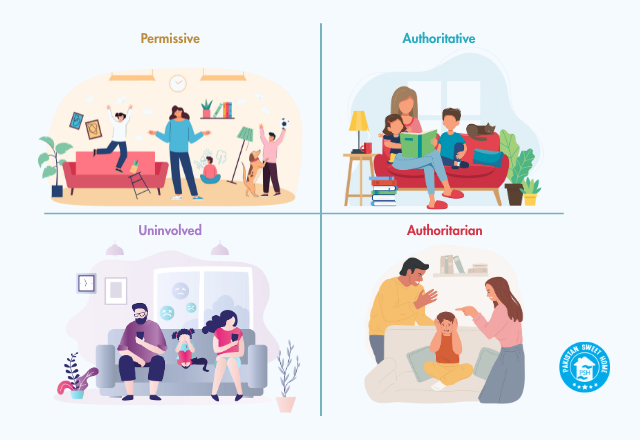
- DONATE
- SPONSOR A CHILD
- Zakat calculator
- SIGN IN
-
- About Us
- FAQ's
- Contact
- Get Involved
- Admissions
- Sign In
- SPONSOR A CHILD ZAKAT CALCULATOR DONATE
-
info@pakistansweethome.org.pk
(051) 4865856
+92 335 1118477
Raising a child alone feels like carrying the weight of the world, with no one to lean on.
From handling school fees on a single income to facing society’s whispers, every moment feels like a test. Even love doesn’t feel enough when stress and societal pressure keep piling on.
But with the right support, understanding, and awareness, single parents can turn survival into strength.
Let’s explore the emotional, social, and legal journey of single parenting—and the way forward in Pakistan.
Single parenting is a family structure where one parent takes on the full responsibility of raising and caring for a child. He/she does this without the consistent presence or support of the other parent.
A single parent does it all—giving love, earning money, setting boundaries, and taking care of everyday needs like food, school, and health. Single parenting is unique not just for having one parent, but for the heavy responsibilities carried alone.
Single parenting doesn't look the same for everyone. The journey, circumstances, and challenges can differ based on how a parent came into this role. Single parenting can happen for many reasons, like divorce, a partner’s death, being left alone, or choosing to raise a child alone.
Below are the four major types of single parents:
These are individuals who have lost their spouses and are now doing child care alone. They often deal with grief while trying to provide emotional stability for their children. Widowed mothers in Pakistan often struggle with financial support and face cultural barriers to work.
After a separation or divorce, one parent often becomes the primary caregiver. These parents often face legal issues, financial stress, and emotional strain from co-parenting challenges.
In Pakistan, divorced mothers are more likely to have limited family support due to social stigma.
Unmarried single parents were never married but raised their children alone, either by choice or circumstance. This includes young mothers, abandoned partners, or those who choose not to reveal the other parent. They often face intense societal judgment and isolation.
This group includes individuals who choose to raise a child alone, through adoption, surrogacy, or other means, without a partner.
Though rare in Pakistan due to cultural sensitivities, this type is more common in urban areas. It is more prevalent among educated communities or professionals with the means and confidence to be solo-parents.
According to the 2023 census:
Exact statistics on single-parent households are scarce, but around 4% of Pakistan’s households are single-parent led. Cultural stigmas and data collection challenges contribute to the lack of comprehensive data.
Single parenting involves balancing many roles, meeting responsibilities, and maintaining emotional stability, often without support. The pressures aren’t limited to just one area of life—they are emotional, financial, physical, and social, all wrapped into one overwhelming daily reality.
Single parents often bear the sole responsibility of providing for their family's financial needs.
This includes expenses related to housing, education, healthcare, and daily living. The absence of a second income can lead to financial instability, making it challenging to meet these obligations.
Balancing work, household responsibilities, and parenting can be overwhelming. Single parents must juggle multiple roles, often without adequate support, leading to stress and burnout.
The emotional toll of single parenting is significant. Feelings of loneliness, anxiety, and depression are common. The lack of a partner to share responsibilities and provide emotional support can exacerbate these feelings.
Single parents are solely responsible for making decisions regarding their children's upbringing, education, and discipline. This can be daunting, especially when facing complex issues without a partner's input.
In some cases, single parents may face rejection or a lack of support from extended family members. This can be due to cultural stigmas associated with divorce or single parenthood, leading to isolation.
Societal norms in Pakistan often emphasize traditional family structures. Single parents, particularly women, may face judgment and discrimination, affecting their social interactions and opportunities.
Employers may hesitate to hire or promote single parents, worried that family duties might affect work. This discrimination can limit career advancement and financial stability.
Single parents may encounter difficulties in securing housing, especially if landlords perceive them as less stable tenants. This challenge is more pronounced for single mothers due to societal biases.
In Pakistan, child custody matters are primarily governed by the Guardians and Wards Act of 1890 and the Muslim Family Laws Ordinance of 1961. The paramount consideration in custody decisions is the welfare of the child.
While much attention is given to single mothers, single fathers also face significant challenges.
Single parents carry not only the responsibilities of raising children but also the emotional weight of doing it alone. Multitasking, making decisions alone, and handling financial or social pressures can harm mental and physical health.
Single parents are at a higher risk of experiencing mental health issues such as depression and anxiety. The constant pressure to provide and care for their children without support can be overwhelming.
Single parenting stress can cause physical issues like fatigue, sleep problems, and a weakened immune system. This constant strain can make it difficult for single parents to maintain their well-being and energy.
If a single parent faces abandonment or abuse, rebuilding trust in future relationships can be hard. This can lead to long-term loneliness or emotional detachment.
In two-parent households, decisions are shared. Single parents must make all decisions alone, from meals and schooling to handling health issues. Over time, this creates decision fatigue, a cognitive strain that weakens focus, patience, and mental clarity.
Many single parents—especially those who are divorced or separated—struggle with persistent guilt. They often wonder if they are enough, question their choices, and blame themselves for everything. This emotional guilt adds to existing stress.
Children raised by a single parent often navigate a unique emotional and social landscape. When one parent is absent due to divorce, death, separation, or abandonment, children face complex emotions.
Challenges are tough, but with support and a positive environment, children often become strong and resilient.
Let’s explore how this upbringing affects different areas of a child’s life:
One of the most profound effects of single parenting is the emotional toll it can take on children. They may feel confused, rejected, or incomplete, especially if the separation from the other parent was sudden or unexplained. This emotional pain can show up as:
If left unaddressed, these early wounds can deepen with time. However, emotional stability and open communication from the present parent can ease this pain and foster healing.
The stress of single parenting, whether financial or emotional, can impact a child's school performance.
When schools and parents collaborate, children often regain focus, discipline, and emotional stability.
Children in single-parent families may feel different from their peers, especially in environments that emphasize “complete families.”
This can lead to:
Supportive schools, extracurricular involvement, and social exposure can help children build confidence and overcome feelings of isolation.
Without the emotional balance of two caregivers, children may develop:
An emotionally supportive single parent helps the child build confidence, trust, and emotional intelligence.
In many single-parent households, one income must stretch to cover all needs. This can limit:
Over time, these limitations can impact a child’s physical and mental growth. Social support, welfare programs, NGO help, and community assistance can reduce the burden and help children.
Despite the odds, many children of single parents grow into stronger and more emotionally aware individuals. They often:
These traits become lifelong assets, helping them succeed not just academically or professionally, but emotionally, too.
Being a single parent is challenging, requiring sacrifices, strength, resilience, and the courage to keep going. While the struggles are real, so are the opportunities for growth, healing, and empowerment.
Empowerment means providing single parents with the tools, knowledge, and support to raise their children confidently.
Participating in parenting workshops and educational programs can equip single parents with effective child-rearing strategies.
Educational institutions play a crucial role in supporting children from single-parent families.
Islam holds the family unit in the highest regard, but it also recognizes the hardships and tests that life may bring.
Single parenting, though not the ideal family life structure in Islamic teachings, is never shamed or looked down upon. Islam focuses on compassion, justice, and responsibility, even when a parent is raising a child alone.
The Prophet Muhammad (PBUH) himself was an orphan and deeply empathetic toward widows and single mothers. He said:
"The one who looks after a widow or a poor person is like a Mujahid (fighter) in the cause of Allah."
(Sahih al-Bukhari: 5353)
This Hadith emphasizes the great reward for those who care for vulnerable members, especially single parents.
In Islam, both parents have responsibilities, but the other parent continues raising the child with love. A single parent who protects, educates, and raises their child with Islamic values earns spiritual rewards for every sacrifice.
Islamic law considers the best interest of the child. Islamic rulings often grant custody of young children to the mother, especially after divorce or death. However, both parents are encouraged to remain involved in the child's upbringing, and cooperation is considered a moral responsibility.
Several Prophets were raised by single parents or lost a parent early in life. Prophet Musa (AS) was raised by his mother under divine guidance.
Prophet Isa (AS) was born to Maryam (AS), a single mother chosen and honored by Allah. These stories show that being raised by a single parent is not a disadvantage. It can be a sign of resilience, divine purpose, and strength.
Islam teaches that society must support those in difficulty. Neighbors, relatives, and the community are encouraged to assist single parents emotionally, financially, and spiritually.
"And cooperate in righteousness and piety..."
(Surah Al-Ma’idah, 5:2)
This verse reminds us that caring for a struggling parent is not just noble—it’s a part of faith.
Raising a child as a single parent in Pakistan is tough, but support systems can help. Although the country lacks government policies for single parents, some nonprofits and community groups are helping. Legal provisions and social initiatives are also helping to fill the gap.
Below are some basic support options that exist:
Several Pakistani organizations are working at the grassroots level to support single mothers and their children.
These include:
These NGOs not only offer financial assistance but also help restore dignity and emotional stability for struggling families.
Being a single parent can be mentally exhausting.
In recent years, counseling centers and online therapy platforms have become more accessible:
Such platforms offer a safe space for single parents to share, heal, and grow stronger emotionally.
For many single mothers, financial independence is a lifeline. Organizations like:
These organizations provide tailored skill-building courses in sewing, crafts, IT, beauty training, and more. Some provide microloans or home-based projects, helping mothers earn while caring for their children.
Although there’s no direct “single parent” welfare scheme, existing government programs like:
These programs offer financial aid, shelter, or legal protection that indirectly supports single mothers. Free legal aid is available in district courts and through NGOs for women facing custody or harassment.
Some private schools, universities, and community schools offer:
Programs like the Aga Khan Foundation and TCF help provide education despite financial challenges for students.
Sharing personal narratives can inspire and provide practical insights:
Ghazala Javed, a renowned Pakistani television actress, has openly discussed the challenges she faced as a single working mother. She emphasized the societal scrutiny and hardships encountered while raising her children alone.
After losing her husband, Zahida Kazmi became Pakistan's first female taxi driver in the 1990s. Operating primarily in the Islamabad–Rawalpindi area, she also ventured into northern regions, challenging societal expectations.
Razia Sahto from Tando Muhammad Khan took over her mother's informal orphanage, providing shelter to 24 orphans. She registered it as a welfare organization in 2022, continuing her mother's legacy despite bureaucratic challenges.
In Lahore's Anarkali Bazaar, Farheen Ishtiaq dresses as a man to avoid harassment while running her corner shop. She decided to raise her nine-year-old daughter alone after being abandoned by her husband during pregnancy.
Samra Zafar was married at 17, endured years of abuse in Canada, and escaped with her daughters. She pursued higher education, became a human rights advocate, and founded Brave Beginnings to help abuse victims.
After the passing of his wife in 1996, Saeed Ahmed Khan chose not to remarry and instead dedicated himself to raising their eight children alone.
At the time of his wife's death, their youngest child was just one and a half years old, and the eldest was 18. Khan's commitment to his family highlights the often-overlooked efforts of single fathers in Pakistan.
Ziauddin Yousafzai, the father of Nobel laureate Malala Yousafzai, has been a steadfast advocate for girls' education and gender equality in Pakistan.
In his memoir, "Let Her Fly," he shares his journey of supporting his daughter's activism and challenging patriarchal norms. His dedication to his children's education and rights exemplifies the profound impact a supportive father can have.
In conclusion, single parenting involves strength, sacrifice, and resilience while raising a child alone. Single parents face challenges like emotional stress, financial struggles, societal judgment, and a lack of support.
Both parents and children face challenges; parents juggle many roles, while children struggle emotionally and socially. Islamic teachings show great compassion for single parents, urging society to support and honor their efforts.
In Pakistan, support systems are growing, with organizations offering emotional, financial, and legal assistance.
A single parent is someone who raises a child alone without help from the other parent. This can happen due to divorce, separation, death, abandonment, or choosing to parent alone.
A single parent takes on full or primary responsibility for the child’s upbringing—physically, emotionally, and financially.
The "single parent rule" generally refers to policies, laws, or benefits designed to support individuals raising children alone.
These can vary by country or organization, but often include:
In Pakistan, while there’s no specific “single parent rule,” some NGOs like Pakistan Sweet Home offer special help for single mothers.
Single parenting refers to any situation where a child is raised by one parent due to reasons like divorce, separation, death of a spouse, or choice. The other parent may still be involved in the child’s life—emotionally, physically, or financially.
Solo parenting goes a step further. It means one parent is completely responsible for the child, with no involvement from the other parent—no emotional, physical, or financial support. Solo parents truly do everything on their own, without backup.
🔹 Example: A divorced parent sharing custody is a single parent. A mother raising a child alone with no contact from the father is a solo parent.

WRITTEN BY
Dr. Ayesha Khan (Child Welfare)
Dr. Ayesha Khan is a dedicated social worker with over 15 years of experience in child welfare and community development. As a passionate advocate for vulnerable children, she has worked tirelessly to create safe and nurturing environments for orphans and underprivileged youth. Dr. Khan holds a PhD in Social Work and has specialized in developing sustainable programs that support the holistic development of children. Through her work at Pakistan Sweet Home, she aims to raise awareness and inspire action through her insightful and compassionate writing.
Dr. Ayesha Khan is a dedicated social worker with over 15 years of experience in child welfare and community development. As a passionate advocate for vulnerable children, she has worked tirelessly to create safe and nurturing environments for orphans and underprivileged youth. Dr. Khan holds a PhD in Social Work and has specialized in developing sustainable programs that support the holistic development of children. Through her work at Pakistan Sweet Home, she aims to raise awareness and inspire action through her insightful and compassionate writing.
Positive Parenting: What It Is and Why It Matters

Gentle Parenting: A Compassionate Approach to Parenting
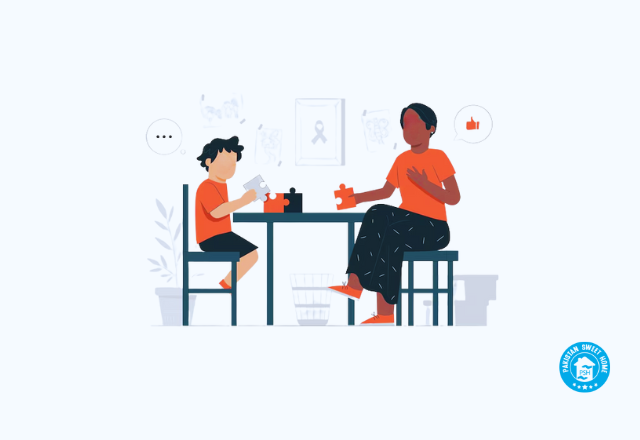
Gentle Parenting Examples: Lead with Understanding and Calm
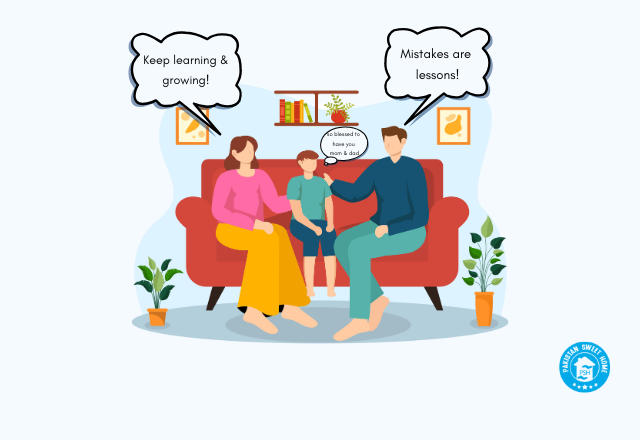
Understanding Authoritative Parenting: Effects & More
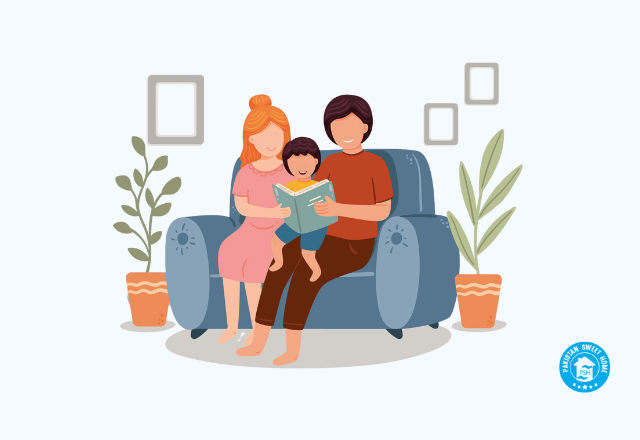
Authoritarian Parenting: What It Is, How It Works, & What to Avoid
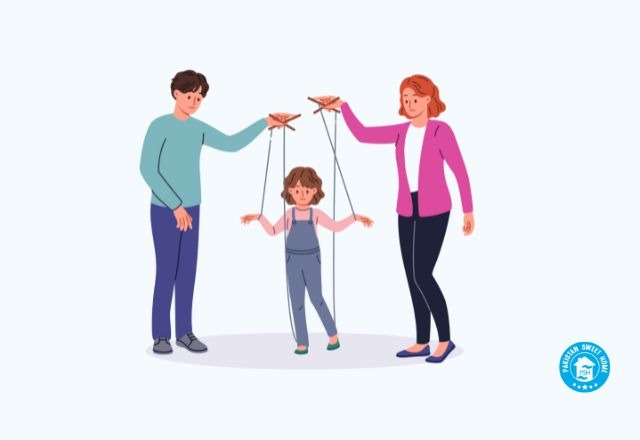
Raising Without Rules: A Look into Permissive Parenting

Uninvolved Parenting: Signs, Consequences, and Support Tips
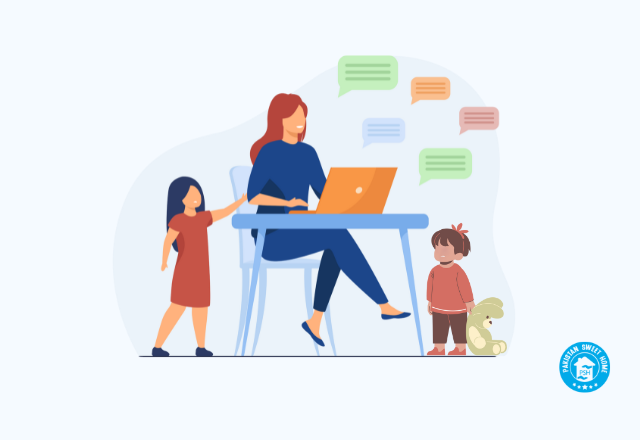
Types of Parenting: Differences, Impact, and Examples
